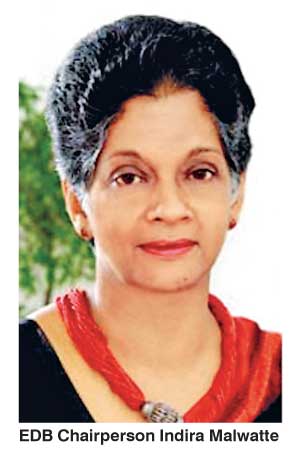Monday Feb 23, 2026
Monday Feb 23, 2026
Monday, 15 May 2017 01:41 - - {{hitsCtrl.values.hits}}
 GSP Plus is offered to encourage a wider range of products to be purchased by the EU. Most of Sri Lanka’s leading export products are included among the 7,500 products eligible for EU GSP. More than 50% of Sri Lanka’s exports are exported to the EU and the US.
GSP Plus is offered to encourage a wider range of products to be purchased by the EU. Most of Sri Lanka’s leading export products are included among the 7,500 products eligible for EU GSP. More than 50% of Sri Lanka’s exports are exported to the EU and the US.
The EU consists of 28 powerful Western nations with a population of 500 million with high purchasing power. GSP plus exempts WTO member countries from MFN for the purpose of lowering tariff preferences for developing countries. Sri Lanka was a beneficiary country from 2005-2010. Due to the withdrawal of the GSP plus facility, most of Sri Lanka’s businesses were shifted to other Asian countries.
Sri Lanka could easily utilise more benefits from EU standard GSP and GSP Plus for exports.
In addition to apparel, the EU is the leading potential market for Sri Lankan fishery products, ceramics, coconut-based products, cut flowers and foliage and is a significant market for tea, spices, footwear and rubber products among a large number of other products.
Producing higher quality products and following ethical practices have become key strengths for Sri Lanka. If Sri Lanka can enjoy the GSP plus facility, its exports will increase significantly with less competition from advanced developing economies (high and upper-middle countries) which do not benefit from the GSP scheme.
The apparel sector would be the biggest user of the GSP+ scheme. With a considerable duty waiver of around 10% for apparel products, Sri Lankan apparel exporters could definitely have a competitive market edge in the EU market. The apparel industry believes that it will enable the country to earn an additional $ 500 million during the next 18 months from the expected increase in their order books.
Since 2010, nearly 200 apparel firms have been closed down, leaving many workers unemployed. These firms and workers will have better prospects to reengage themselves in the industry with the restoration of GSP plus.
The EDB is keen to carry out a number of programs covering several key sectors for maximum utilisation of GSP+ restoration. Initially, EDB is geared to develop strategies for key potential sectors to maximise export revenue.
Apparel sector - Technology upgradation program for SME apparel sector
The SME apparel sector was the sector most affected by the loss of the EU GSP+ concessions in 2010. Though large companies are major contributors to the total apparel export earnings there is a considerable contribution made by the SME apparel sector. Therefore, SME companies need to be supported and developed for the sustainability of the industry.
The EDB took steps to facilitate SMEs through SEDEX, BSCI and WRAP to gain confidence and build up long-term business relationships with buyers.
Arrangements are also being made to organise the participation of Sri Lankan apparel companies at the Apparel Sourcing Paris in September this year for the very first time.
Product development program for footwear manufacturers and exporters
A product development program is to be launched to enhance the product quality of a select group of footwear manufacturers and exporters by providing expert knowledge on shoe technology, targeting the international market, especially the EU.
The program will be implemented in two stages. During Stage I, the experts will work with the selected companies to provide knowhow on shoe engineering with suggestions to improve or upgrade products and production processes.
Stage II of the program will be implemented three months after the completion of Stage I to provide further advice to develop a technically specified and improved product line to suit the international market and advise the participants in solving problems which they may encounter in implementing suggested modifications to meet international standards in their products.
Fisheries sector
The EU has lifted the ban on fishing products last year on Illegal Unreported and Unregulated fishing (IUU) in Sri Lanka and seafood exporters are looking forward to re-establishing contacts with their buyers in the EU. EDB organised the participation of nine Sri Lankan seafood companies at the Seafood Expo Global 2017, the world’s largest seafood trade event held in Brussels, Belgium from April 2017, as a platform for them to rebuild the relationship and plan for increased exports with GSP plus.